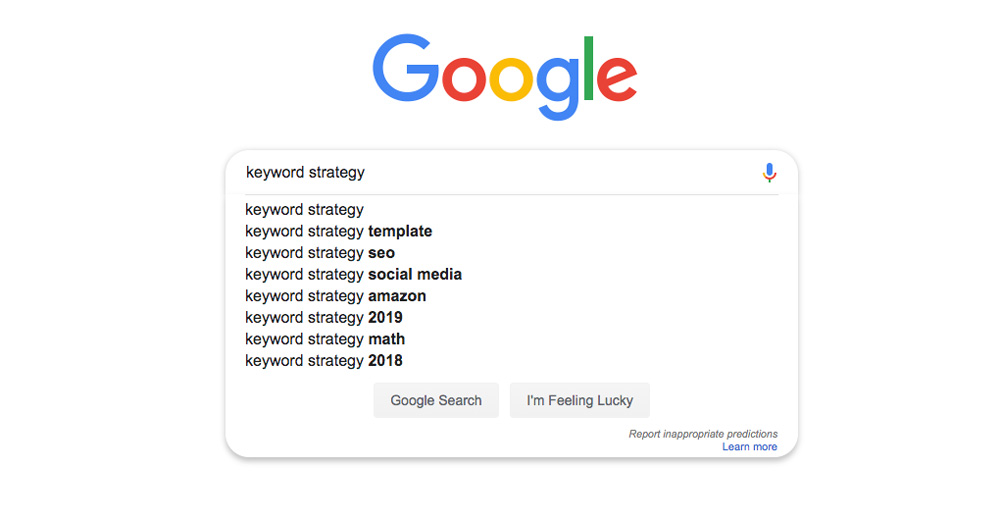We all heard that keyword strategy plays an important role in improving site visits and catering to the right material to our users. But what is the keyword strategy? And how can we put it together for our own website?
Content writing is one of the most important ways of improving your user experience and your site’s position in search result pages. Content has a direct impact on your site’s SEO and valuable content will increase the credibility of your site and turn visitors to loyal customers.
Table Of Contents
What is Keyword Strategy?
Researching and analyzing keywords and finding ways of incorporating them into the
The keyword strategy determines how you will use keywords within your site’s content. How to determine your keyword strategy? What tips can help us to draw a better strategy?


How to Find Keywords?
To determine a keyword strategy, you need to first find words or phrases that will direct users from search engine result pages to your site. The following suggestions may be helpful in this process.
Start with yourself
As a first step, you should find your target keywords. What do you do? What service do you offer? What product do you sell? What is your goal in writing content and attracting users? What are the specific keywords of your business? What message do you want to convey to your audience? Why a user or audience should see your site and its content? By answering these questions, you can use your resources better and use a better strategy for your keywords.
Attract the audience based on intent
Once you’ve identified the keywords, it’s time to review these words through search engines. Intent determines what users hope to find, searching a specific keyword.
Do you know your audience? Are they looking for information or are they going to buy a product? Is there a way to attract users to your site based upon what they want?
Pay attention to keywords
Words are at the center of everything. By using keyword research, you should get an overview of what words are searched and what purposes do they serve. Then, you should write user-friendly content. Content that directly connects users with their ultimate goal.
How competitive your keywords are?
While writing your keyword strategy, you should examine rivals as well. What do they do? How strong are you in the keyword you want to compete in? What kind of content do your competitors produce? How do they rank in that keyword? Can you get a good rank in that keyword in the long term? Which sites are at the top of the keyword list and how powerful are they?
Find out the number of searches
By using the powerful tools available on the Internet, you can find how much your targeted keywords have been searched. You can find the number of searches per month within an estimated range, with Google’s free tools such as Google keyword planner and Google trends.
If you enter keyword planner with Google Adverts Accounts, you can find both synonyms of keywords and the number of searches per month, the difficulty in the competition, and other comprehensive information. Google Trends also helps you check the search volume of each word in a different time and geographic locations.
Research competitors
Beside Google tools, there is the powerful Kwfinder, that you can use to see popular keywords and their competition rate.
In addition to the information above, Kwfinder provides you with a list of main competitors, along with their position within the keyword. KWfinder is not free but lets you analyze 2 to 5 keywords every day by registering for free.
You can also easily see the top ten sites in that keyword on the home page by simply searching the keyword in Google’s search box. If these ten sites are among the top sites in your country, you will surely have a tough competition ahead of you. Otherwise, you can reach your goal with a useful and properly written content.
Once you’ve figured out how to determine the keyword strategy, it’s time to select a list of words to start writing content for. Compile this list based upon your main goal, the competition within your keyword, the number of monthly searches and users’ needs. Then create an attractive title and content that is user-friendly and comprehensive.
Review this content after it’s publishing through Google Analytics and update your strategy if needed. You may need to re-write the content or select other targeted keywords.
So don’t consider compiling your keyword strategy as a one-time deal. The strategy needs to be reviewed regularly and as long as your site is online.
How to Update and Promote your Keywords Strategy?
As we mentioned, determining the initial strategy is not the last task, but the start of a long-term process. After creating the content for targeted keywords and uploading them on the site, it’s time to analyze the outcomes.
You can use two powerful Google tools, Google Webmaster Tools and Google Analytics, for this. These two will give you valuable information about your keywords rank, their visit rate, and comprehensive information about the type of visitors.
After using these two tools to check the position of your keywords and how effective they are they, you need to upgrade your keyword strategy.
Sometimes a new keyword has turned to be more effective than your targeted keyword. sometimes you need to even distance yourself from keywords that are wrongly indexed within.
Ways to Improve the Keyword Strategy
You need to take sufficient steps to improve the results after the strategy has been revised. including:
- Updating your content
- Creating landing pages for specific keywords
- Providing special content for specific users
- Improve your content by adding audio and video files
- Make attractive video adverts
Finally, you need to know there are many ways to improve your keyword strategy, but each method leads to different destinations. Some methods are more difficult than others, but they can help you to reach your destination faster.
There are also some methods that all competitors can use, but it is also essential for your site. Therefore, take your keyword strategy seriously and try designing a flexible program to improve it.
Do you have a keyword strategy? How do you find your strategy and what steps do you take to review?




